Discover Teaching Python
Teaching Python

Teaching Python
Author: Sean Tibor and Kelly Paredes
Subscribed: 760Played: 11,218Subscribe
Share
© 2025 Sean Tibor and Kelly Paredes
Description
Welcome to "Teaching Python Podcast,” the go-to podcast for anyone interested in the intersection of education and coding. Hosted by Kelly Paredes and Sean Tibor, this podcast dives into the thrills and challenges of teaching computer science through the engaging and versatile Python programming language.
About the Hosts:
Kelly Paredes brings a wealth of global experience in curriculum design and currently inspires sixth and eighth graders at Pine Crest School in Fort Lauderdale, Florida. Celebrating her seventh year of integrating Python into her teaching, Kelly has a knack for making complex concepts accessible and exciting.
Sean Tibor, a Cloud Engineering leader at Mondelez International, draws from a rich background that spans marketing, database design, and digital agency leadership. Having taught Python to seventh and eighth graders at Pine Crest School, Sean now extends his expertise by supporting interns and tutoring students in Python.
Explore with Us:
* Engaging Lessons: Discover how we make Python programming both fun and accessible for young learners, equipping them with the skills to tackle real-world problems.
* Classroom Insights: Experience our journey through both triumphs and trials in the classroom, and learn what it takes to foster a vibrant learning environment.
* Expert Interviews: Gain valuable perspectives from interviews with fellow educators and industry experts, who share their top strategies and success stories in coding education.
About the Hosts:
Kelly Paredes brings a wealth of global experience in curriculum design and currently inspires sixth and eighth graders at Pine Crest School in Fort Lauderdale, Florida. Celebrating her seventh year of integrating Python into her teaching, Kelly has a knack for making complex concepts accessible and exciting.
Sean Tibor, a Cloud Engineering leader at Mondelez International, draws from a rich background that spans marketing, database design, and digital agency leadership. Having taught Python to seventh and eighth graders at Pine Crest School, Sean now extends his expertise by supporting interns and tutoring students in Python.
Explore with Us:
* Engaging Lessons: Discover how we make Python programming both fun and accessible for young learners, equipping them with the skills to tackle real-world problems.
* Classroom Insights: Experience our journey through both triumphs and trials in the classroom, and learn what it takes to foster a vibrant learning environment.
* Expert Interviews: Gain valuable perspectives from interviews with fellow educators and industry experts, who share their top strategies and success stories in coding education.
154 Episodes
Reverse
Julian Sequeira from PyBites joins Sean and Kelly to share their top holiday gift picks for coders, makers, and educators. This episode features 15+ gift ideas ranging from budget-friendly maker tools to classroom robots—plus book recommendations, coding platforms, and a few surprises.
Show Notes
Wins of the Week
Julian: Staying focused on "the one thing" at PyBites, plus 3D printing a custom cappuccino stencil for his local café
Kelly: Surviving a muddy, clay-covered hill in North Carolina while on vacation
Sean: Designing and 3D printing a custom bracket for his screen door using Fusion 360
Holiday Gift Ideas
Julian's Picks
Hoverboard with Go-Kart Attachment (~$299 AUD) - Two-wheeled self-balancing boards that can convert to a go-kart with a third wheel attachment. Available at Hoveroo (https://hoveroo.com.au) in Australia.
Secret Coders Book Series (~$10-20 USD each) - A six-book graphic novel series that wraps coding puzzles and concepts into mystery stories. Recommended by Faye Shaw from the Boston PyLadies community. Great for ages 8-15.
3D Printer (~$200-300 USD) - Entry-level printers like the Bambu Lab A1 Mini or Elegoo Neptune 4 Pro have dropped significantly in price. Look for auto bed leveling as a key feature.
Duolingo Chess (~$13/month with subscription) - A new addition to Duolingo that teaches chess tactics, strategy, and formal terminology through structured lessons. Great for building problem-solving skills.
Classic Video Games (Zelda, Pokémon) - Story-driven games that build resilience and problem-solving skills, as an alternative to dopamine-heavy platforms like Roblox.
Kelly's Picks
Soccer Bot (~$59.99) - An indoor soccer training robot that challenges footwork skills. Works best on hard floors.
"The Worlds I See" by Dr. Fei-Fei Li - Memoir of the computer scientist behind ImageNet and modern image recognition, covering her immigrant journey and rise in AI. A must-read for anyone interested in AI.
LEGO Retro Radio Building Set (~$99) - A 1970s-style radio that you build, then insert your phone to play music. Features working dials that create authentic radio crackle sounds.
Spydroid Loco Hex Robot (classroom investment) - A large spider-shaped robot that codes in Python and block programming. Features LIDAR and AI-based mapping. Seen at ISTE.
Richtie Mini from Hugging Face ($299-$449) - An adorable AI desktop companion robot with onboard models. Two versions: one that connects to your computer and one that's self-contained.
Sean's Picks
LED Pucks (LED 001 Kit) (~$6-13) - Small USB-powered LED discs perfect for 3D printed projects like planet lamps. Available from Bambu Labs or Amazon. RGB versions include remote controls.
Daily Desk Calendar (~$15-20) - A throwback gift that provides daily doses of humor, trivia, or inspiration. Suggestions include The Far Side, "They Can Talk," or "How to Win Friends and Influence People."
PyBites Coding Platform (subscription) - Bite-sized Python challenges for sharpening coding skills. Great for teachers, students, and professionals looking for practical coding practice.
Digital Calipers (~$40-50) - USB-rechargeable precision measuring tools essential for 3D printing and maker projects. Great for teaching geometry and measurement concepts.
Deburring Tool (~$10) - A small tool with a curved swiveling blade for cleaning up 3D prints. A quality-of-life improvement for any maker's toolkit.
Links Mentioned
PyBites (https://pybit.es) - Python coaching and coding challenges
Hoveroo (https://hoveroo.com.au) - Hoverboards (Australia)
Bambu Lab (https://bambulab.com) - 3D printers and LED pucks
Printables (https://www.printables.com) - 3D printing models
MakerWorld (https://makerworld.com) - 3D printing models
Hugging Face Richtie Mini (https://huggingface.co) - AI companion robot
Duolingo (https://duolingo.com) - Language learning app with chess
Secret Coders book series - Available on Amazon
"The Worlds I See" by Dr. Fei-Fei Li - Available at bookstores
Upcoming Events
PyCon US 2026 - Long Beach, California
Education Summit - Proposals open after the holidays, deadline around March/April
Submit proposals when the website opens! Special Guest: Julian Sequeira.
In this episode, we sit down with Quincy Tennyson, who teaches an impressive four-year computer science pathway at Fern Creek High School. Quincy's background in the Marine Corps and as a network engineer brings a unique perspective to CS education. He discusses his curriculum progression from introductory courses through AP Computer Science Principles (heavily inspired by UC Berkeley's CS61A), AP Computer Science A (Java), and a culminating Project-Based Programming course. We dive deep into his philosophy of being a "warm demander" - setting high expectations while providing intensive coaching and support.
The conversation touches on several compelling topics including teaching agile methodology to high school students, the importance of transparency about failure, and how behavioral economics concepts (from thinkers like Daniel Kahneman) inform his approach to helping students understand their own thinking processes. Quincy also shares insights on supporting underserved students, running a successful Girls Who Code chapter, and navigating the integration of AI tools in the classroom. His students' enthusiasm at PyCon 2024 was infectious, and this episode reveals the thoughtful pedagogy behind their success.
Key resources mentioned include CS61A from UC Berkeley (https://cs61a.org/), CodeHS (https://codehs.com/), Code.org (https://code.org/), Sandra McGuire's book "Teach Students How to Learn," Eric Matthes' Python Crash Course (https://nostarch.com/python-crash-course-3rd-edition), and Al Sweigart's (https://alsweigart.com/) educational resources including his new Buttonpad library for Tkinter. Special Guest: Quincy Tennyson.
In this episode, Sean and Kelly welcome Pritesh Patel, a computer scientist specializing in AI who brings over 20 years of experience from companies like Turner Broadcasting, Walmart, and GE to his current role at Fisher Phillips law firm. Pritesh shares fascinating insights about implementing AI in knowledge-based industries, from automating his parents' frozen yogurt shop to helping lawyers transform their workflows.
The conversation explores crucial concepts like the "Jobs to Be Done" framework, which emphasizes focusing on outcomes rather than getting stuck in existing processes. Pritesh explains how he approaches AI education through playfulness and intuition-building—whether that's getting Batman to sing "Twinkle, Twinkle Little Star" in ChatGPT or creating AI personalities that debate humans. The discussion touches on the importance of maintaining accountability while delegating responsibility to AI tools, the power of curiosity in adoption, and how reinforcement learning might shape the future of AI integration.
Key resources mentioned:
- Strategyn Jobs to Be Done Framework (https://strategyn.com/) - Tony Ulwick's innovation methodology
- NotebookLM (https://notebooklm.google.com/) - Google's AI-powered research tool
- Suno.ai (https://suno.com/) - AI music generation platform
- OpenAI's Real-time API for voice interactions Special Guest: Pritesh Patel.
In this milestone 150th episode, hosts Kelly Schuster-Paredes and Sean Tibor sit down with Simon Willison, co-creator of Django and creator of Datasette and LLM tools, for an in-depth conversation about artificial intelligence in Python education.
The discussion covers the current landscape of LLMs in coding education, from the benefits of faster iteration cycles to the risks of students losing that crucial "aha moment" when they solve problems independently. Simon shares insights on prompt injection vulnerabilities, the importance of local models for privacy, and why he believes LLMs are much harder to use effectively than most people realize.
Key topics include:
Educational Strategy: When to introduce AI tools vs. building foundational skills first
Security Concerns: Prompt injection attacks and their implications for educational tools
Student Engagement: Maintaining motivation and problem-solving skills in an AI world
Practical Applications: Using LLMs for code review, debugging, and rapid prototyping
Privacy Issues: Understanding data collection and training practices of major AI companies
Local Models: Running AI tools privately on personal devices
The "Jagged Frontier": Why LLMs excel at some tasks while failing at others
Simon brings 20 years of Django experience and deep expertise in both web development and AI tooling to discuss how educators can thoughtfully integrate these powerful but unpredictable tools into their classrooms. The conversation balances excitement about AI's potential with realistic assessments of its limitations and risks.
Whether you're a coding educator trying to navigate the AI revolution or a developer interested in the intersection of education and technology, this episode provides practical insights for working with LLMs responsibly and effectively.
Resources mentioned:
- Simon's blog: simonwillison.net
- Mission Encodable curriculum
- Datasette and LLM tools
- GitHub Codespaces for safe AI experimentation Special Guest: Simon Willison.
Description
In this episode, we're thrilled to welcome Sheena O'Connell, an educator and developer from South Africa who has been making waves in the Python education community. Sheena shares her journey from electrical engineering to founding Prelude, where she runs advanced Django learning sprints and teamwork training courses.
We explore the critical importance of soft skills in technical education, diving into Google's Project Aristotle and the five key factors that make teams effective: psychological safety, dependability, structure and clarity, meaning, and impact. Sheena provides fascinating insights into how cultural concepts like Ubuntu ("I am because we are") influence collaborative learning and professional development.
The conversation covers practical strategies for teaching both technical and soft skills to adult learners, the challenges of helping students transition from learning to professional environments, and how to build psychologically safe spaces that promote growth and learning.
We also discuss upcoming events including Django Con Africa in Tanzania and PyCon Africa in Johannesburg, South Africa, which Sheena is chairing.
Whether you're an educator, team leader, or developer interested in fostering better collaborative environments, this episode offers valuable insights into the intersection of technical education, cultural awareness, and team dynamics.
Key Topics Discussed
Transitioning from technical roles to education
Building effective coding bootcamps and adult learning programs
The importance of soft skills in technical careers
Google's Project Aristotle and team effectiveness
Psychological safety and stereotype threat
Cultural influences on learning and teamwork (Ubuntu philosophy)
Managing the "desperation mindset" in learning environments
Professional development and career transitions
PyCon Africa and Django Con Africa
Cross-cultural team dynamics and communication
Guests
Sheena O'Connell - Founder of Prelude, former educator at Umuzi, and chair of PyCon Africa 2025
Resources Mentioned
Google's Project Aristotle (https://rework.withgoogle.com/en/guides/understanding-team-effectiveness)
The Culture Map (book on cultural differences in teams)
Prelude Tech (https://prelude.tech) - Sheena's platform for Django courses and teamwork training
PyCon Africa 2025 (Johannesburg, South Africa)
Django Con Africa (Arusha, Tanzania)
Ubuntu philosophy
Umuzi (South African coding bootcamp)
Connect with Sheena
Personal blog: sheenaoc.com (https://sheenaoc.com)
Courses and training: Prelude TV
PyCon Africa 2025: October, Johannesburg, South Africa
Wins and Fails of the Week
Sheena
Win: Successfully running a teamwork course for Canonical with an international team
Fail: All her plants fell onto the couch (and the subsequent cleanup)
Kelly
Win: Attending ISTE conference in San Antonio, meeting previous podcast guests, and co-hosting a presentation
Fail: Losing momentum on Anthony Shaw's GitHub course due to summer break
Sean
Win: Being interviewed by media about AI coding tools and AWS Amazon Q
Fail: Home server power supply failure during a lightning storm, breaking all home automations
Episode Notes
This episode provides valuable insights for educators at all levels, from K-12 teachers to corporate trainers. The discussion of soft skills, cultural awareness, and team dynamics offers practical strategies that can be applied in classrooms, coding bootcamps, and professional development settings.
The conversation highlights how technical education must go beyond coding skills to prepare students for successful careers, emphasizing the importance of communication, collaboration, and cultural competency in today's global technology landscape. Special Guest: Sheena O'Connell.
In this special episode of Teaching Python, hosts Sean Tibor and Kelly Schuster-Paredes convene an open space discussion at PyCon US 2025 in Pittsburgh. Surrounded by a diverse group of educators, developers, and learners, they hand the mic to the community to answer two key questions: How are you using AI personally, and how do you see AI shaping education?
Listeners will hear firsthand accounts from university lecturers, high school teachers, industry professionals, and volunteer mentors. Topics include the impact of AI tools on coding productivity, the challenges of assessing genuine learning in an AI-rich environment, and strategies for teaching critical thinking alongside technical skills. The episode also delves into the tension between embracing AI as an educational aid and ensuring students develop foundational problem-solving abilities.
Whether you’re an educator, developer, or simply curious about the future of learning, this episode offers a nuanced, multi-perspective look at AI’s growing influence in the classroom and beyond.
In Episode 147 of Teaching Python, Sean Tibor and Kelly Schuster-Paredes focus on the importance and power of teaching APIs to coding students. They share personal stories and practical strategies for engaging students with APIs, from simple use cases to more complex projects. Join them as they discuss how to make lessons fun and relevant, leveraging LLMs (Large Language Models) for code explanations, and teaching through trial and error. This episode also touches on the broader applications of APIs in today's technological landscape, examining how learning APIs can open up new possibilities for students and equip them with essential skills for the future. Whether you're a teacher, student, or coding enthusiast, there's something valuable in this episode for you.
In episode 146 of Teaching Python, hosts Sean Tibor and Kelly Schuster Perez delve into the newly established Python Education and Outreach Work Group, featuring guests Cheuk Ting Ho and Keith Murray. The group, aimed at enhancing Python education within the community, outlines its mission to gather feedback on educational resources and support initiatives like the Education Summit at PyCon US. Keith and Cheuk discuss their backgrounds and roles within the Python Software Foundation, emphasizing the need for fresh educational content and community engagement.
The episode also explores the work group's goals, which include:
Seeking and receiving feedback on Python educational resources
Consolidating and improving existing Python education materials
Supporting and expanding the education summit at PyCon US
Additionally, the hosts share personal 'wins of the week,' highlighting the importance of accountability and community in the educational journey. Kelly and Sean discuss their past experiences with the Education Summit and encourage listeners to get involved by submitting talk proposals or joining in interactive sessions. The episode concludes with practical advice on how educators and enthusiasts can engage with the group to further Python education and outreach. Special Guests: Cheuk Ting Ho and Keith Murray.
In episode 145 of Teaching Python, Sean Tibor and Kelly Schuster-Paredes celebrate their six-year podcast anniversary and discuss the shifts within computer science education and the growing influence of AI. They both reflect on the podcast’s journey, their experiences with Blue Sky, and the milestone of over 500,000 downloads. The conversation delves into the changing landscape of tech roles, emphasizing the importance of foundational coding skills and computational thinking, regardless of emerging technologies like AI. They underline how coding remains a key skill that enables personal growth and opens vast opportunities, even in the face of fast-evolving tech sectors.
Our hosts also highlight their exciting upcoming engagements, including the FETC conference and the Pine Crest Innovation Institute, encouraging listeners to remain adaptable and open to new learning avenues. Furthermore, they discuss the concept of adapting computer science curriculums to reflect real-world applications and evolving job markets, focusing on how to better prepare students for future careers. With a mix of personal anecdotes and professional insights, this episode offers a heartfelt look at the impact of teaching coding and the continuous evolution in education and technology.
In episode 144 of Teaching Python, hosts Sean Tibor and Kelly Schuster-Paredes are joined by special guest Kudzayi Bamhare from Zimbabwe. They dive into the important topic of Python education as a driver of innovation in Africa, focusing specifically on the challenges and opportunities in Zimbabwe. The conversation covers how coding communities are forming and thriving despite various hurdles, and how inclusive environments can foster learning and growth in the tech industry.
Kudzayi shares his inspiring journey into the world of coding, beginning with his initial exposure to Python and how attending Python conferences like PyCon Namibia have been pivotal in his growth. He emphasizes the importance of community, collaboration, and support in helping budding coders overcome challenges and stay motivated. The discussion also highlights the need for more initiatives and workshops to bridge the gap in tech education across the continent.
The episode concludes with insightful ideas on how to create effective learning environments and the role of educators in nurturing future tech talents. Sean and Kelly, alongside Kudzayi, discuss the significance of making coding accessible and engaging, especially in underrepresented regions. They call on listeners to support initiatives that bring Python education to Africa, encouraging a global collaboration to drive technological progress and innovation. Special Guest: Kudzayi Bamhare.
In Episode 143 of Teaching Python, hosts Sean Tibor and Kelly Schuster-Paredes engage in a compelling conversation with Dr. John Chapin, a renowned computer science educator and presenter at CSTA. As the CS Pathway Leader at the Academies of Loudoun, Dr. Chapin brings over a decade of experience in primary and secondary education, creating and implementing rigorous curricula for post-AP CS students. He shares insights into the transformative power of Computational Thinking 2.0, emphasizing the importance of Python and data science in today's educational landscape. Listeners will gain a deeper understanding of how integrating machine learning, data analytics, and mobile app development into CS education can foster a culture of inquiry, creativity, and collaboration among students and educators.
Throughout the episode, Dr. Chapin discusses his recent research on the impact of whiteboarding on student self-efficacy in CS1 classes, as presented at the Association for Computing Machinery's Global Computer Education Conference (CompEd2023). He also shares his experiences conducting professional development workshops for CS teachers across Virginia and his efforts to align CS programs with the evolving needs of the workforce and society. This episode is a must-listen for educators, administrators, and anyone passionate about the future of computer science education, offering actionable ideas and inspiration to enhance their teaching practices and curriculum design. Special Guest: Dr. John Chapin.
In Episode 142 of Teaching Python, hosts Sean Tibor and Kelly Schuster-Paredes are joined by Kelly Powers, a fellow middle school educator and curriculum designer, to explore the dynamic world of middle school instruction. As a passionate advocate for computational thinking, Powers shares valuable insights on introducing students to the concepts of AI, data science, and cybersecurity in a way that is both rigorous and joyful.
Topics Covered
Engaging Middle School Students: Strategies for capturing and maintaining student interest.
Creativity and Collaboration: How to foster a collaborative environment that inspires creativity.
Core Computational Concepts: Real-world applications that make these concepts accessible and interesting.
Data Science Projects: Practical advice on integrating data science into your curriculum.
Generative AI Ethics: Discussing the ethical use of AI in education.
Python as a Teaching Tool: Exploring the versatility of Python for various projects.
Key Takeaways
Integrating Computational Thinking Skills: Tips on how to weave these skills into everyday classroom routines.
Teamwork and Communication: The importance of teamwork and effective communication in coding projects.
Engaging Lessons with Python: How Python can be used to create engaging and meaningful projects for students.
About Kelly Powers
Kelly Powers transitioned from the business world to education, bringing a fresh perspective on teaching computational thinking. She offers invaluable insights into making rigorous and joyful learning experiences for middle school students.
Whether you are an experienced teacher or new to the field, this episode is packed with actionable ideas and inspirational moments that will help you create a more engaging and effective learning environment.
Tune in for a lively conversation that celebrates the magic of middle school teaching and the endless possibilities of computer science education.
Listen to the episode: Teaching Python Podcast (https://www.teachingpython.fm/142)
Follow us on Social Media:
- Twitter (https://twitter.com/teachingpython)
- Facebook (https://www.facebook.com/teachingpython)
- LinkedIn (https://www.linkedin.com/company/teaching-python)
``` Special Guest: Kelly Powers.
Join hosts Kelly Schuster-Paredes and Sean Tibor as they welcome esteemed Python expert Trey Hunner to the show. This episode is a delightful mix of practical insights, engaging stories, and thought-provoking discussions about Python and teaching.
Trey shares his experiences with listeners, starting with his recent venture into launching a 10-week Python course called Python High Five. He talks about the excitement and challenges of teaching across different time zones with this unique setup, highlighting the importance of accountability and the fun of learning alongside his students.
Throughout the episode, Sean and Kelly discuss the evolving landscape of AI and its impact on learning. Trey emphasizes the critical skill of asking the right questions, saying, "Knowing how to use that tool is a really valuable thing, but also knowing what to stick into the tool and how to evaluate the output of the tool is a really valuable thing."
The conversation transitions into the heart of Python programming, where Trey, Sean, and Kelly share their favorite features and nuances of Python. They explore the value of looping helpers and marvel at the elegance and simplicity of Python's tools and functions. Sean recalls a memorable teaching moment about Python turtle graphics, reflecting on the joy and discovery that comes with coding: "It was so cool that this sixth grader showed me how to do it."
This episode is not just about technical insights but also about the joy of teaching and learning. Trey, Kelly, and Sean discuss strategies for balancing the basics with advanced learning and the importance of having fun in the process. Join them for a warm, inclusive conversation that invites you to be part of their journey through the wonders of Python programming. Special Guest: Trey Hunner.
In this episode of Teaching Python, Sean and Kelly are joined by Renee Noble, a dynamic Microsoft Cloud Advocate and CEO of a nonprofit dedicated to helping women and gender-diverse individuals learn to code. The discussion delves into Renee's inspiring journey from chemical engineering to tech advocacy, her role in the Girls Programming Network (GPN), and how she has helped thousands of individuals build their coding skills and confidence. Renee emphasizes the importance of creating inclusive and supportive learning environments, explaining the unique methodologies used at GPN to cater to diverse learning levels. The conversation also covers the role of mentors and the significance of having role models at different stages of one's learning and professional journey in tech. Finally, Renee shares her insights on her advocacy work at Microsoft and the impact of clear, approachable guidance in onboarding new learners to cloud technologies. Tune in to discover valuable lessons on building supportive tech communities and fostering diversity in the industry.
In Episode 139 of Teaching Python, hosts Sean Tibor and Kelly Schuster-Paredes welcome back Brianne Caplan, the dynamic founder of Code Your Dreams. The conversation explores the exciting advancements in coding education since Brianne's last appearance in 2019. They delve into the importance of blending play and learning, the impact of generative AI, and the power of community-driven innovation. Brianne shares inspiring success stories from students of all ages, from first graders creating mindfulness apps to adults developing solutions for police transparency. The episode also examines the role of failures in the learning process and the opportunities for growth they present. Tune in for an uplifting discussion about leveraging technology to create positive change in diverse communities and fostering an environment where everyone has the opportunity to innovate. Special Guest: Brianne Caplan.
In episode 138 of Teaching Python, hosts Sean Tibor and Kelly Schuster-Paredes welcome Pamela Fox, a Principal Developer Advocate at Microsoft, to discuss the dynamic world of teaching, coding, and creating. Pamela shares her experiences working with Python in the cloud, emphasizing the various applications from serverless functions to web application backends using frameworks like Flask and Django. This episode provides a comprehensive look at how cloud-based environments like GitHub CodeSpaces and CoLab make programming more accessible and reduce the friction often associated with setting up development environments.
Pamela dives into her approach to teaching and the unique challenges posed by different educational formats. Drawing from her work at institutions like UC Berkeley and her development of AP Computer Science Principles content for Khan Academy, she highlights the importance of making learning engaging and personalized. Pamela shares insights into the design of interactive and project-based curricula, touching on how tools like Parsons problems can scaffold learning effectively and make complex concepts like recursion more approachable.
The conversation also explores the significance of visualizations in learning programming, as exemplified by Pamela's recursion visualizer tool. The episode concludes with reflections on the breadth of topics covered in AP CSP and the value of exposing students to a wide array of programming experiences. Listeners gain a deeper understanding of the balance between teaching fundamental concepts and encouraging creative expression through code, along with practical tips for educators at all levels. Special Guest: Pamela Fox.
In this insightful episode of Teaching Python, hosts Sean Tibor and Kelly Schuster-Paredes engage in a dynamic conversation with the eminent Kelsey Hightower. The episode delves into Hightower's journey from self-taught programmer to distinguished engineer at Google, touching on the significance of lifelong learning and the non-traditional paths that many successful technologists follow. Hightower's anecdotes are not only inspiring but also provide valuable lessons on perseverance and the importance of staying curious.
The episode tackles key themes around the entrepreneurial mindset, advising both students and educators on how to take calculated risks and break away from conventional norms. Hightower shares his unique insights on how thinking like an entrepreneur can lead to personal and professional growth, and how these principles can be applied even in structured educational environments. His stories about facing and overcoming challenges offer a blueprint for anyone looking to innovate within their current roles.
For educators, Hightower's discussion emphasizes the need to look beyond the standard curriculum and foster an environment where students feel empowered to explore and experiment. The episode is rich with ideas on how to cultivate a nurturing yet challenging atmosphere that encourages students to think independently and embrace failure as a stepping stone to success. Whether you are a teacher, student, or tech enthusiast, this episode provides a wealth of wisdom on nurturing potential and achieving excellence. Special Guest: Kelsey Hightower.
Summary
This episode features a conversation with Dr. Chuck Severance about making programming accessible to everyone, the importance of practical applications in learning, and the potential of remote internships in programming education.
Description
In this episode of Teaching Python, hosts Kelly Schuster-Paredes and Sean Tibor chat with Dr. Chuck Severance, widely known as Dr. Chuck, about his innovative approaches to make Python and programming accessible to everyone. They discuss Dr. Chuck's methods for engaging learners of all ages, the critical role of practical application in education, and how creating connections can help students retain complex concepts.
The conversation also delves into the potential for scalable, remote internships and how empowering students with programming skills at a younger age can have far-reaching effects on their future careers. Dr. Chuck shares his experiences, strategies, and vision for the future of programming education, making this episode a must-listen for educators and learners alike.
Sections
Introduction
Wins of the Week
Guest Introduction
The Making of a Viral Python Course
Importance of Practical Applications
Empowering the Future with Python
Closing Remarks
Special Guest: Dr. Charles Severance aka "Dr. Chuck".
In this episode of Teaching Python, hosts Sean Tibor and Kelly Schuster-Paredes dive deep into the innovative intersection of law and coding with special guests Morgan Gray and Wes Oliver from Duquesne University's School of Law. This fascinating conversation explores how Python programming is being integrated into the law curriculum to enhance the analytical and information processing skills of law students. The episode kicks off with introductions and personal anecdotes, setting the stage for a thought-provoking discussion about the future of legal education.
Morgan and Wes share their unique journey of incorporating Python into their legal courses, detailing their beginning stages and the progression they've seen in their students. They discuss the challenges and rewards of teaching coding to future lawyers and the significant benefits it provides to their legal studies and careers. Through real-life examples and success stories, listeners gain insight into how Python is not only a tool for software development but also a powerful aid in legal problem-solving and decision-making.
The episode wraps up with a look at the broader implications and future opportunities for law graduates who possess coding skills. Sean and Kelly highlight the feedback from employers and the growing demand for tech-savvy lawyers in the industry. Whether you're a law student, educator, or tech enthusiast, this episode offers a compelling look at how the integration of coding into non-traditional fields can open new avenues for innovation and efficiency. Special Guests: Morgan Gray and Wes Oliver.
In this episode, we have a candid conversation with Jay Miller, the founder of Black Python Devs. Jay shares his journey into the tech world, highlighting the inspiration behind starting Black Python Devs and the essential role it plays in extending the reach of the Python community into the black ecosystem. We discuss how his organization fosters safe, equitable, and accessible environments for Black developers, breaking down barriers and creating pathways for new talent to enter and thrive in the industry.
Our discussion touches on the critical need for diversity and inclusion within tech communities and companies. Jay elaborates on practical strategies to make tech events and workplaces more welcoming for historically excluded groups. From the importance of having a strong code of conduct to providing logistical support like childcare and travel reimbursements, Jay emphasizes how small actions can make a significant impact in creating a culture where everyone feels they belong.
We also dive into the often overlooked challenges that Black tech professionals face, such as negotiating salaries and finding mentors who look like them. Jay offers invaluable insights on why visibility and representation matter, sharing personal anecdotes and practical advice for both aspiring developers and established leaders. Whether you're an educator, a tech professional, or someone interested in creating more inclusive communities, this episode is packed with thought-provoking discussions and actionable takeaways. Special Guest: Jay Miller.



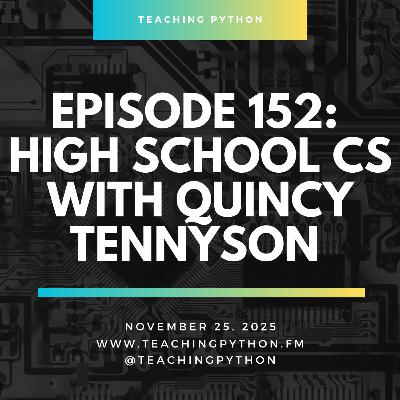
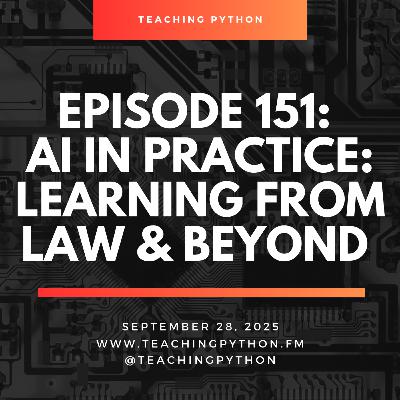
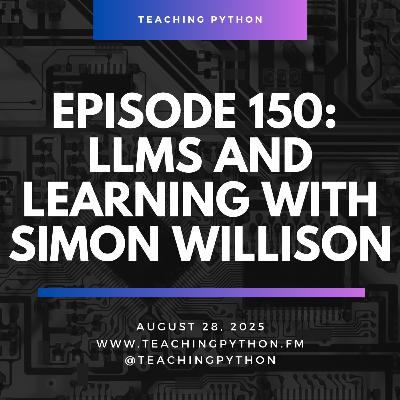
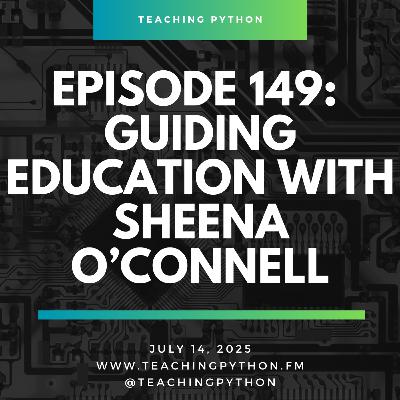
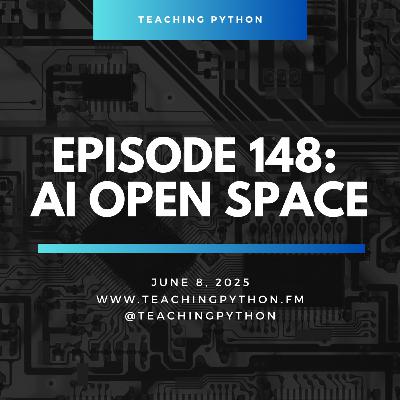
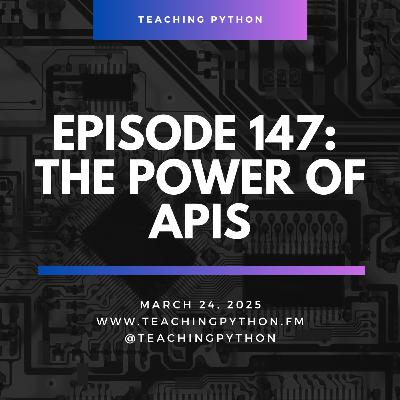
















I am loving the podcasts. Short, to the point and yet very informative. Thanks a lot.